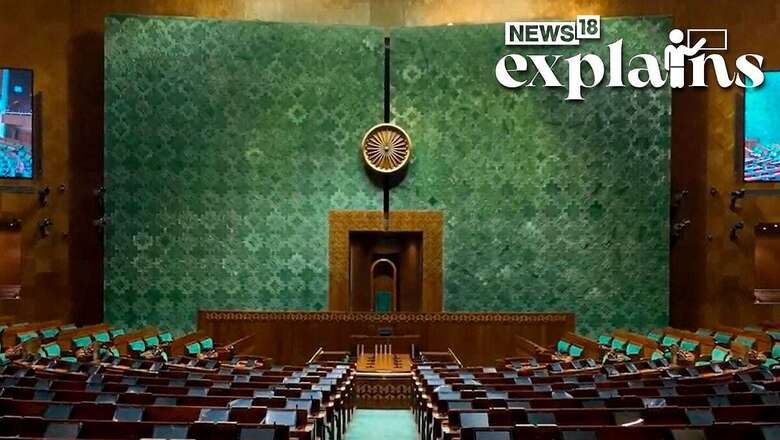
views
The government tabled The Government of National Capital Territory of Delhi (Amendment) Bill, 2023 in Lok Sabha last week to replace the ordinance related to the control of services in the national capital.
Though the bill has all the major provisions of the ordinance, but it has undergone significant changes and three provisions that were part of the ordinance have been dropped from the bill.
While the controversial Delhi Services Bill is in Rajya Sabha for discussion and voting on today (Monday), here is all you need to know about an ordinance and a bill and how it becomes law.
What is an ordinance?
The legislature has the power to make laws and the Members of Parliament (MPs) or a minister can introduce bills to make laws when the parliament is in session. There are three sessions of parliament- the Budget session, the monsoon session and the winter session. There cannot be a gap of more than six months between two sessions of the parliament.
However, in cases when Parliament is not in session and ‘immediate action’ is required, the President can issue an ordinance. An ordinance is a law and could introduce legislative changes.
Under Article 123 of the Indian Constitution, the President has the power to issue Ordinance. The Supreme Court has said that the legislative power to issue ordinances is ‘in the nature of an emergency power’ given to the executive only ‘to meet an emergent situation’.
The President acts on the advice of the Council of Ministers, therefore it is the government that takes the decision on issuing ordinance.
After the ordinance is issued, it is to be laid before Parliament within six weeks of its first sitting. An ordinance is valid for six months and six weeks. An ordinance can also lapse earlier if the President withdraws it or if the Houses pass resolutions disapproving it.
How is Ordinance Different from Bill?
Once the ordinance is laid in the parliament, the government introduces a Bill addressing the same issue and replacing the ordinance. This Bill highlights the reasons that necessitated the issue of the Ordinance. Thereafter, the Bill follows the regular law-making process.
After the bill is introduced, it is sent to both the houses of the parliament for discussion and voting. When it passes both the houses, it is sent to the President for his assent. After the bill passes Parliament and the President, it becomes an act.
Therefore, while an ordinance is a temporary law that is only valid for six months, a bill is a proposed legislation that becomes a law after the passage in both houses or Parliament and after the President’s assent.




















Comments
0 comment